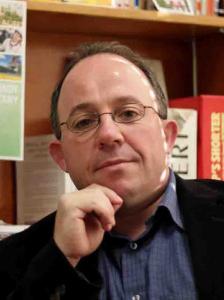French
The French program at Clemson explores the diverse cultures of the French-speaking world. Whether you are interested in the humanities, business, technology, education, international health care, or the connections between all of these, studying French at Clemson will prove to be a multifaceted and invaluable experience for you.

Why French?
There are many reasons to take French at Clemson:
- France’s long cultural, artistic, and literary history can only truly be appreciated in the native language. Many of the world’s most famous intellectuals and scientists are French: Marie Curie, Louis Pasteur, Claude Monet, René Descartes, and others too numerous to list.
- French is the only language spoken on all 7 continents. It is the official language of 28 countries and is spoken in over 50. The French-speaking countries in Africa, for example, cover more combined land area than the entire United States. See this website: https://onu.delegfrance.org/Francophonie-8628
- According to an article in Forbes, French may well be “the language of the future” with nearly 750 million speakers by 2050.
- French was once the main language of trade and diplomacy, and it retains a prime position in those roles today. For example, it is one of the official languages of the UN and the Olympic Organizing Committee.
- The United States and France have long been allies. The French aided us during the Revolutionary War as we aided them during World War II. Without the influence of the Enlightenment philosophers such as Montesquieu and Rousseau, our government would have looked very different!
- It is the 2nd most important language, other than English, in the Business World (per Bloomberg Rankings). French companies employ approximately 1 million Americans in the US (including Michelin in South Carolina). In recent years, the US has been the largest investor in France, which is also the 4th largest destination of foreign investment in the world.
- France is the number one destination for tourists in the world.
- France and Francophone countries are deeply involved in humanitarian work. Proficiency in French is a major asset if you wish to be involved in this field (Peace Corps, wildlife research/preservation, Doctors without Borders, etc.).
- It looks great on job applications! Often considered one of the more difficult Romance languages, a prospective employer will be impressed that you have the drive and ability to become proficient in French.
- The program offers a flexible Modern Languages major that lends itself to double-majoring in another academic field.
- A program in Language and International Business trains you in French and Francophone language, literature, and culture while preparing you for the business world. Students in the major validate their expertise by working toward the Diplôme de Français des Affaires granted by the Paris Chamber of Commerce.
- A program in Language and International Health Major combines study of French and Francophone language, culture, literature, and health systems with coursework in Public Health and medicine.
- Various extra-curricular activities: the French Club, the French Professional Society, and the French Honor society, faculty presentations, film series, and more.
What Does It Offer?
The Program offers:
- A flexible Modern Languages major that lends itself to double-majoring in another academic field.
- A Language & International Business Major that trains you in French and Francophone language, literature, and culture while preparing you for the business world. Students in the major validate their expertise by working toward the Diplôme de Français des Affaires granted by the Paris Chamber of Commerce.
- A new Language & International Health Major that combines study of French and Francophone language, culture, literature, and health systems with coursework in Public Health and medicine.
- A menu of affordable, high-quality, study-abroad programs in Lyon, Paris, Normandy, Pau, and Aix-en-Provence.
- Various extra-curricular activities: the French Club, the French Professional Society, and the French Honor society, faculty presentations, film series, and more.
Contact information
Kenneth Widgren
501 Strode
kwidgre@clemson.edu
Giving to French
Clubs
Faculty
-
French Faculty
French

Mylene Boudreau, MSN, APRN, FNP-C
Lecturer
Email: myleneb@clemson.edu
Office: 201 Edwards Hall
Phone: (864) 656-7622

Kelly Digby Peebles, Ph.D.
Associate Professor of French
Email: kpeeble@clemson.edu
Office: 710 Strode
Phone: (864) 656-8922

Anne Salces y Nedeo
Senior Lecturer of French
Feminist Rhetorics, New Materialism, History, Philosophy
Email: asalces@clemson.edu
Office: 702 Strode

Amy Sawyer
Senior Lecturer
Email: agriff2@clemson.edu
Office: 361B Daniel Hall Expansion

Pauline De Tholozany, Ph.D.
Associate Professor of French
18th- and 19th-century French literature and cultural history; 18th- and 19th-century representations of slavery and colonized groups; Affect theory, emotions in Literature; Social customs, salons and rules of civility; Transatlantic literature, relation between French and Hispanic literature in the 19th and 20th centuries/
Email: pdethol@clemson.edu
Office: 512 Strode

Eric Touya de Marenne, Ph.D.
Professor of French and Interdisciplinary Studies; Chevalier des Palmes Académiques
20th-21st century French/Francophone Literature and Culture, Women's Studies and Leadership, Public Humanities, Interdisciplinary Approaches to Literature, Ethics, and Social Studies
Email: etouya@clemson.edu
Office: 505 Strode

Kenneth Widgren, Ph.D.
Principal Lecturer of French
Email: kwidgre@clemson.edu
Office: 702 Strode

